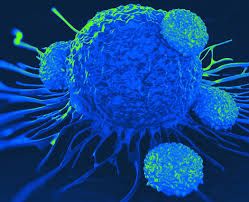Cancer Immunology
Aim
The overall goal of our translational research in the field of Cancer Immunology is to investigate new immunotherapy’s by vaccination and antibody therapy. We focus on both the tumor specific innate and the adaptive immunity overcoming the tumor suppressive tumor micromilieu. We develop new multiparameter immune monitoring panels and analyse novel immune suppressive molecular players within the tumor microenvironment to interfere with to further improve immune diagnostics and the design of novel immunotherapy’s. Our focus is on melanoma, colonrectal and pancreatic cancer and glioblastoma.
Approach
We use in vitro and in vivo models for melanoma, colon, pancreatic cancer and glioblastoma. We design and synthesize DC targeting nanovaccines modified peptidenetworks, and have multiparameter parameter CYTOF analysis and microscopy analysis and firefly imaging systems to analyse immunological responses. We use antibody treatments in the metastatic formation of tumors. Moreover using CRISPR-Cas we modify regulatory glycosylation mechanisms in tumor to study their effects on tumorimmunity. One of our major strengths is that we have access to well-characterized patients samples that allowing us to translate our fundmental findings to clinical applications.

Principal Investigators
Prof. dr. Yvette van Kooyk studies DC targeted cancer vaccines and combination therapies aimed to redirect immune regulatory programs in the tumor microenvironment that are caused by the glyco-code.
Prof. dr. Reina Mebius focusses on the role of stromal cells in the survival and maintenance of tumor cells, as well as their effect on lymphocytes in relation to anti-tumor immunity.
Prof. dr. Marjolein van Egmond investigates novel antibody formats to engage immune effector cells in tumor cell elimination and to initiate anti-tumor immune responses.
Dr. Joke den Haan investigates the capacity of different types of myeloid antigen presenting cells (APCs) to activate anti-cancer immune responses and develops cancer nanovaccines that are delivered to specific APC cell types.
Dr. Sandra J. van Vliet dissects how aberrant glycan signatures in the tumor microenvironment signal through glycan-binding lectin receptors to alter anti-tumor immunity.
Dr. ir. Jan Van den Bossche investigates macrophage immunometabolism and aim to understand the mechanisms by which metabolic crosstalk in the tumor microenvironment affects macrophage function, thereby uncovering new strategies to manage disease outcome.
Dr. Juan J. Garcia Vallejo uses high dimensional cytometry methods to characterize the immune composition both in tumors and blood in several cancer models with the aim of identifying common mechanisms of disease and cellular biomarkers.
Dr. Febe van Maldegem investigates how the different cells in the tumour microenvironment form complex cellular networks in space and time, and how we can use that to strengthen immune responses in therapy.